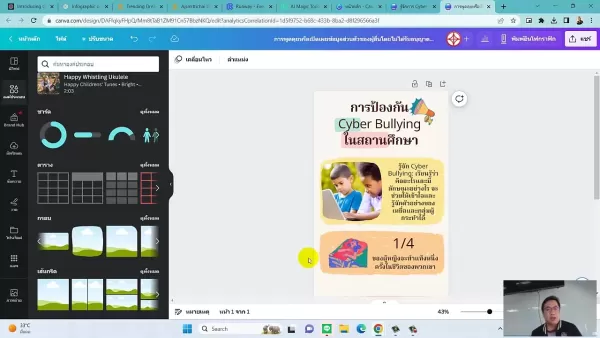Google Unveils Free AI Coding Assistant with Extremely High Usage Limits
On Tuesday, Google unveiled a fresh, free version of its AI-powered code completion and assistance tool, dubbed Gemini Code Assist for individuals. Alongside this, they launched Gemini Code Assist for GitHub, an innovative code review "agent" that autonomously searches for bugs and provides suggestions right within the GitHub platform.
Gemini Code Assist for individuals allows developers to engage with a Google AI model through a chat interface, using natural language to access and modify their codebase. Similar to GitHub's well-known Copilot, this tool can fix bugs, complete code sections, or clarify confusing parts of the code.
The AI behind Google's coding assistant is a specialized version of the Gemini 2.0 model, optimized specifically for coding tasks. It seamlessly integrates with popular development environments like VS Code and JetBrains through plugins, supporting a wide array of programming languages.

What's impressive about Code Assist for individuals is its generous allowance of 180,000 code completions monthly—that's a whopping 90 times more than the free GitHub Copilot's 2,000 completions. Additionally, users get 240 chat requests daily, almost five times the amount offered by the free GitHub Copilot plan.
The engine driving Code Assist for individuals boasts a 128,000-token context window, which Google claims is over four times larger than competitors'. This means the model can process more code at once, making it easier to handle complex codebases.
Starting Tuesday, developers can sign up for the free public preview of Gemini Code Assist for individuals.
Gemini Code Assist for GitHub
On the other hand, Gemini Code Assist for GitHub automatically reviews pull requests for bugs and offers additional, potentially useful recommendations.
Google's Strategy in the Developer Tools Market
These new tools are part of Google's intensified push to challenge Microsoft and its subsidiary, GitHub, in the developer tools arena. Seven months ago, Google recruited Ryan Salva, former head of the GitHub Copilot team, to lead their developer tooling initiatives.
By providing a free AI coding assistant with high usage limits, Google aims to attract early-career developers to Code Assist, as Salva shared in a TechCrunch interview. The strategy is to encourage these users to eventually upgrade to an enterprise version of Code Assist, where Google plans to generate revenue.
Google has been offering Gemini Code Assist to businesses for about a year now. In December, they announced that the AI coding assistant would integrate with third-party tools from GitLab, GitHub, and Google Docs. Enterprise tiers of Code Assist come with enhanced features such as audit logs, integration with other Google Cloud products, and the ability to customize for private repositories.
Related article
 Best AI Tools for Creating Educational Infographics – Design Tips & Techniques
In today's digitally-driven educational landscape, infographics have emerged as a transformative communication medium that converts complex information into visually appealing, easily understandable formats. AI technology is revolutionizing how educa
Best AI Tools for Creating Educational Infographics – Design Tips & Techniques
In today's digitally-driven educational landscape, infographics have emerged as a transformative communication medium that converts complex information into visually appealing, easily understandable formats. AI technology is revolutionizing how educa
 Topaz DeNoise AI: Best Noise Reduction Tool in 2025 – Full Guide
In the competitive world of digital photography, image clarity remains paramount. Photographers at all skill levels contend with digital noise that compromises otherwise excellent shots. Topaz DeNoise AI emerges as a cutting-edge solution, harnessing
Topaz DeNoise AI: Best Noise Reduction Tool in 2025 – Full Guide
In the competitive world of digital photography, image clarity remains paramount. Photographers at all skill levels contend with digital noise that compromises otherwise excellent shots. Topaz DeNoise AI emerges as a cutting-edge solution, harnessing
 Master Emerald Kaizo Nuzlocke: Ultimate Survival & Strategy Guide
Emerald Kaizo stands as one of the most formidable Pokémon ROM hacks ever conceived. While attempting a Nuzlocke run exponentially increases the challenge, victory remains achievable through meticulous planning and strategic execution. This definitiv
Comments (3)
0/200
Master Emerald Kaizo Nuzlocke: Ultimate Survival & Strategy Guide
Emerald Kaizo stands as one of the most formidable Pokémon ROM hacks ever conceived. While attempting a Nuzlocke run exponentially increases the challenge, victory remains achievable through meticulous planning and strategic execution. This definitiv
Comments (3)
0/200
![BenHernández]() BenHernández
BenHernández
 August 19, 2025 at 9:01:15 PM EDT
August 19, 2025 at 9:01:15 PM EDT
Wow, Google’s Gemini Code Assist sounds like a game-changer with those crazy high usage limits! 180,000 completions a month? That’s like giving coders a free buffet while GitHub’s Copilot is just a snack bar. Excited to try it out in VS Code! 😎


 0
0
![AnthonyMoore]() AnthonyMoore
AnthonyMoore
 August 19, 2025 at 3:01:23 PM EDT
August 19, 2025 at 3:01:23 PM EDT
C'est incroyable, Google qui offre un outil d'IA aussi puissant gratuitement ! 😮 Les 180 000 complétions de code par mois, c'est énorme, mais je me demande si ça va vraiment tenir face à GitHub Copilot. Peut-être une stratégie pour capter les devs avant de les pousser vers des abonnements payants ?


 0
0
![EricMartinez]() EricMartinez
EricMartinez
 August 1, 2025 at 2:45:46 AM EDT
August 1, 2025 at 2:45:46 AM EDT
Wow, Google’s new AI coding assistant sounds like a game-changer! Free with high usage limits? That’s a bold move to outshine competitors. I’m curious how it stacks up against GitHub’s Copilot in real-world projects. Anyone tried it yet? 😎


 0
0
On Tuesday, Google unveiled a fresh, free version of its AI-powered code completion and assistance tool, dubbed Gemini Code Assist for individuals. Alongside this, they launched Gemini Code Assist for GitHub, an innovative code review "agent" that autonomously searches for bugs and provides suggestions right within the GitHub platform.
Gemini Code Assist for individuals allows developers to engage with a Google AI model through a chat interface, using natural language to access and modify their codebase. Similar to GitHub's well-known Copilot, this tool can fix bugs, complete code sections, or clarify confusing parts of the code.
The AI behind Google's coding assistant is a specialized version of the Gemini 2.0 model, optimized specifically for coding tasks. It seamlessly integrates with popular development environments like VS Code and JetBrains through plugins, supporting a wide array of programming languages.

What's impressive about Code Assist for individuals is its generous allowance of 180,000 code completions monthly—that's a whopping 90 times more than the free GitHub Copilot's 2,000 completions. Additionally, users get 240 chat requests daily, almost five times the amount offered by the free GitHub Copilot plan.
The engine driving Code Assist for individuals boasts a 128,000-token context window, which Google claims is over four times larger than competitors'. This means the model can process more code at once, making it easier to handle complex codebases.
Starting Tuesday, developers can sign up for the free public preview of Gemini Code Assist for individuals.
Gemini Code Assist for GitHub
On the other hand, Gemini Code Assist for GitHub automatically reviews pull requests for bugs and offers additional, potentially useful recommendations.
Google's Strategy in the Developer Tools Market
These new tools are part of Google's intensified push to challenge Microsoft and its subsidiary, GitHub, in the developer tools arena. Seven months ago, Google recruited Ryan Salva, former head of the GitHub Copilot team, to lead their developer tooling initiatives.
By providing a free AI coding assistant with high usage limits, Google aims to attract early-career developers to Code Assist, as Salva shared in a TechCrunch interview. The strategy is to encourage these users to eventually upgrade to an enterprise version of Code Assist, where Google plans to generate revenue.
Google has been offering Gemini Code Assist to businesses for about a year now. In December, they announced that the AI coding assistant would integrate with third-party tools from GitLab, GitHub, and Google Docs. Enterprise tiers of Code Assist come with enhanced features such as audit logs, integration with other Google Cloud products, and the ability to customize for private repositories.
 Best AI Tools for Creating Educational Infographics – Design Tips & Techniques
In today's digitally-driven educational landscape, infographics have emerged as a transformative communication medium that converts complex information into visually appealing, easily understandable formats. AI technology is revolutionizing how educa
Best AI Tools for Creating Educational Infographics – Design Tips & Techniques
In today's digitally-driven educational landscape, infographics have emerged as a transformative communication medium that converts complex information into visually appealing, easily understandable formats. AI technology is revolutionizing how educa
 Topaz DeNoise AI: Best Noise Reduction Tool in 2025 – Full Guide
In the competitive world of digital photography, image clarity remains paramount. Photographers at all skill levels contend with digital noise that compromises otherwise excellent shots. Topaz DeNoise AI emerges as a cutting-edge solution, harnessing
Topaz DeNoise AI: Best Noise Reduction Tool in 2025 – Full Guide
In the competitive world of digital photography, image clarity remains paramount. Photographers at all skill levels contend with digital noise that compromises otherwise excellent shots. Topaz DeNoise AI emerges as a cutting-edge solution, harnessing
 Master Emerald Kaizo Nuzlocke: Ultimate Survival & Strategy Guide
Emerald Kaizo stands as one of the most formidable Pokémon ROM hacks ever conceived. While attempting a Nuzlocke run exponentially increases the challenge, victory remains achievable through meticulous planning and strategic execution. This definitiv
Master Emerald Kaizo Nuzlocke: Ultimate Survival & Strategy Guide
Emerald Kaizo stands as one of the most formidable Pokémon ROM hacks ever conceived. While attempting a Nuzlocke run exponentially increases the challenge, victory remains achievable through meticulous planning and strategic execution. This definitiv
 August 19, 2025 at 9:01:15 PM EDT
August 19, 2025 at 9:01:15 PM EDT
Wow, Google’s Gemini Code Assist sounds like a game-changer with those crazy high usage limits! 180,000 completions a month? That’s like giving coders a free buffet while GitHub’s Copilot is just a snack bar. Excited to try it out in VS Code! 😎


 0
0
 August 19, 2025 at 3:01:23 PM EDT
August 19, 2025 at 3:01:23 PM EDT
C'est incroyable, Google qui offre un outil d'IA aussi puissant gratuitement ! 😮 Les 180 000 complétions de code par mois, c'est énorme, mais je me demande si ça va vraiment tenir face à GitHub Copilot. Peut-être une stratégie pour capter les devs avant de les pousser vers des abonnements payants ?


 0
0
 August 1, 2025 at 2:45:46 AM EDT
August 1, 2025 at 2:45:46 AM EDT
Wow, Google’s new AI coding assistant sounds like a game-changer! Free with high usage limits? That’s a bold move to outshine competitors. I’m curious how it stacks up against GitHub’s Copilot in real-world projects. Anyone tried it yet? 😎


 0
0





























